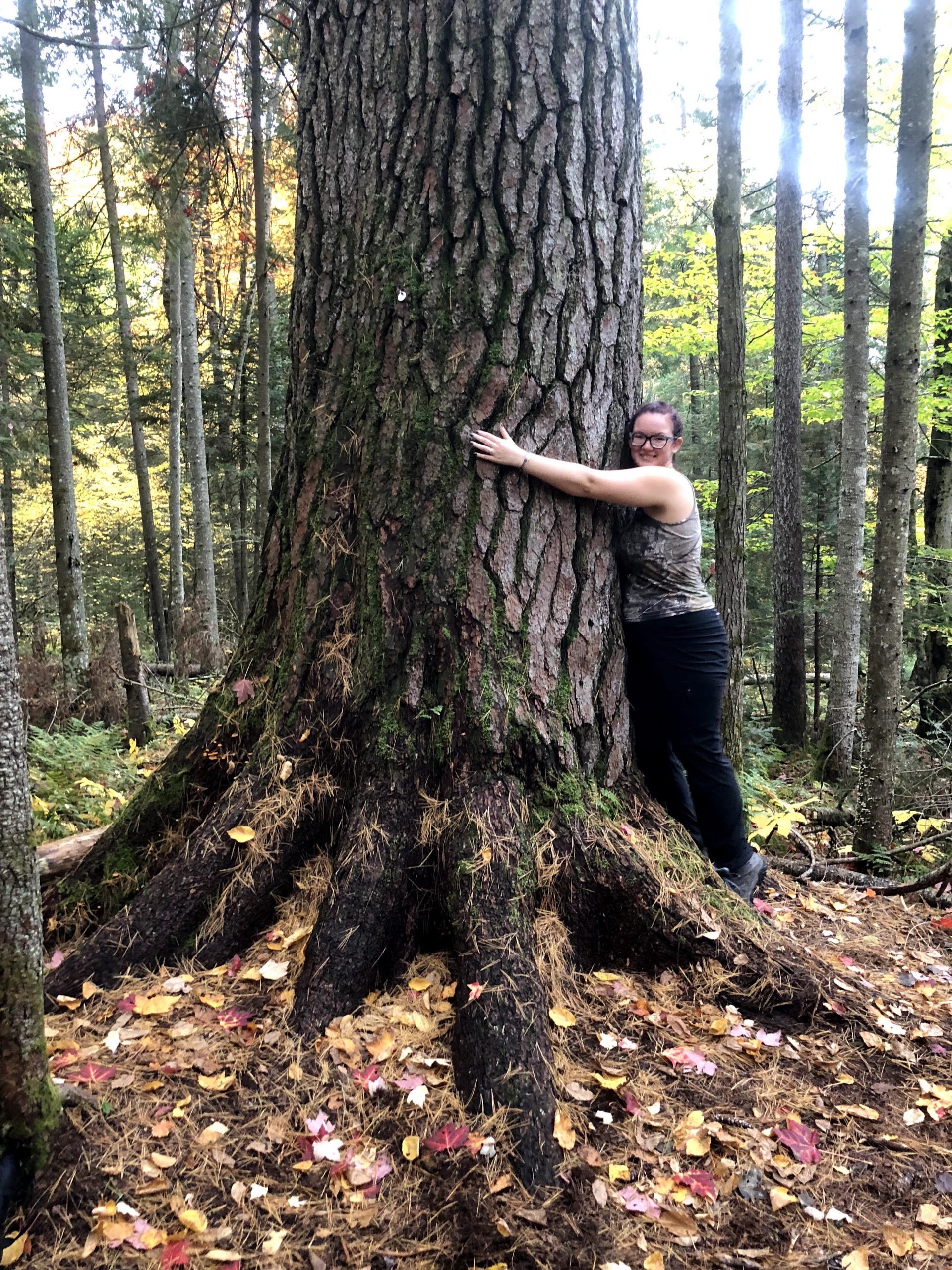Hi! I’m Megan Flory, a senior here at Clarkson with dual majors in psychology and political science, and minors in environmental science and environmental policy. I’m from Wareham, Massachusetts, an Atlantic coastal town about seven hours away from Clarkson. My majors are part of both the Department of Psychology, as well as the Department of Humanities & Social Sciences.
Why Clarkson?
Oddly enough, I originally heard about Clarkson in a hotel review when my dad was looking for a place for us to stay while visiting other schools in the region. We figured that since we were making the drive up anyway, I may as well see what Clarkson had to offer.
I was looking for a university that would give me the opportunity to be more than just another nameless face in a massive lecture hall and my tour at Clarkson convinced me that that’s what I would find here. (BTW, be sure to take a tour!) Now, with just one semester left until I graduate, I am happy to report that I have had some incredible opportunities to get to know my professors and grow as a student, a researcher, and a person.
Flexibility
My favorite thing about my majors is the flexibility they’ve given me. Majoring in either psychology or political science (or both) gives you a lot of freedom to explore what aspects of your field you like the most and also lets you dive into topics that might not be completely relevant to your degree
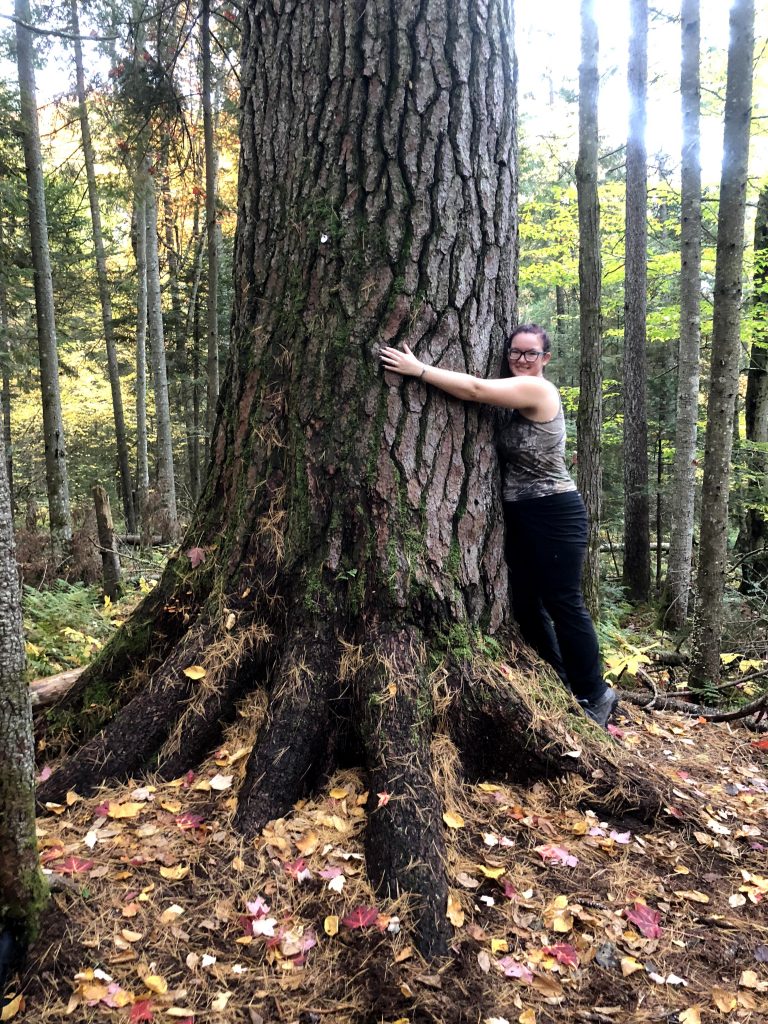
For example, I started Clarkson majoring in psychology with a minor in biology, behavior, and society, but decided that I wanted to branch out and try the Adirondack Semester, which is heavily focused on sustainability and the environment.
Going into the program in the fall of my sophomore year, I didn’t think it would really relate to my degree or my career path; it sounded cool, though, so I did it. Throughout the semester, I began to realize that there is definitely a psych component to sustainability, which I hadn’t put a lot of thought into previously. I also realized that I had a passion for policy and community-level sustainability.
So, I worked with my advisor to make some adjustments to my degree path by adding a second major in political science and the minors in environmental science and environmental policy. I now have two majors and two minors that cover a range of topics that I love!
The Adirondack Semester
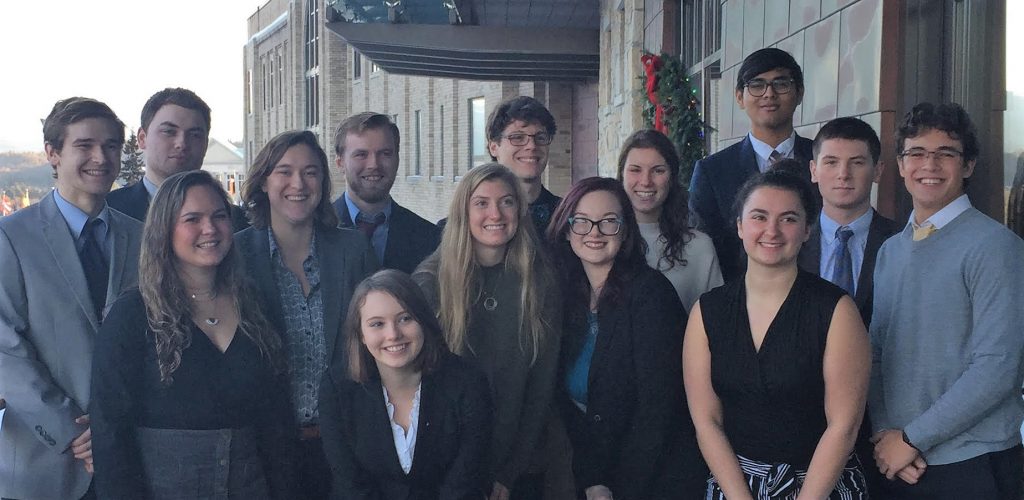
Participating in the Adirondack Semester was, without a doubt, the best thing I could’ve done for myself at Clarkson. The program accepts up to 14 students every fall to live at Paul Smith’s College in the Adirondacks for an immersive living-learning experience. You have a 15-credit course load for the semester, but each cohort takes slightly different classes because each year undertakes a different real-world research project
Everyone gets something different out of the Adirondack Semester, but pretty much everyone comes away with new skills, unique research and career opportunities, and a better sense of who they are and what’s important to them. Plus, as corny as it sounds, you’ll meet new people who will become some of your best friends in life.
Political Science
Political science is part of Clarkson’s Department of Humanities & Social Sciences, which offers degrees in many other subjects as well, like history, literature, liberal studies, social sciences, and social documentation. Personally, I think our department has some of the best professors at the University!
My two favorite things to study are people and the environment, and majoring in political science has let me study both in really interesting ways. I’ve taken courses you might expect for my major, like environmental policy or constitutional law, but I also got to take a course on happiness and how it relates to public policy. How many other universities offer that?
Research & Experience
The Adirondack Semester allowed me to get involved in a single-semester research project that turned into a multi-year partnership that’s now turning into a career. I’ve also been able to present my work at multiple conferences, including a 40-minute talk at a state-wide sustainability conference. With the help of Clarkson’s Shipley Center for Innovation, I’ve even co-founded a start-up consulting firm to work with communities to improve their sustainability planning, a field I wouldn’t have been introduced to without the Adirondack Semester.
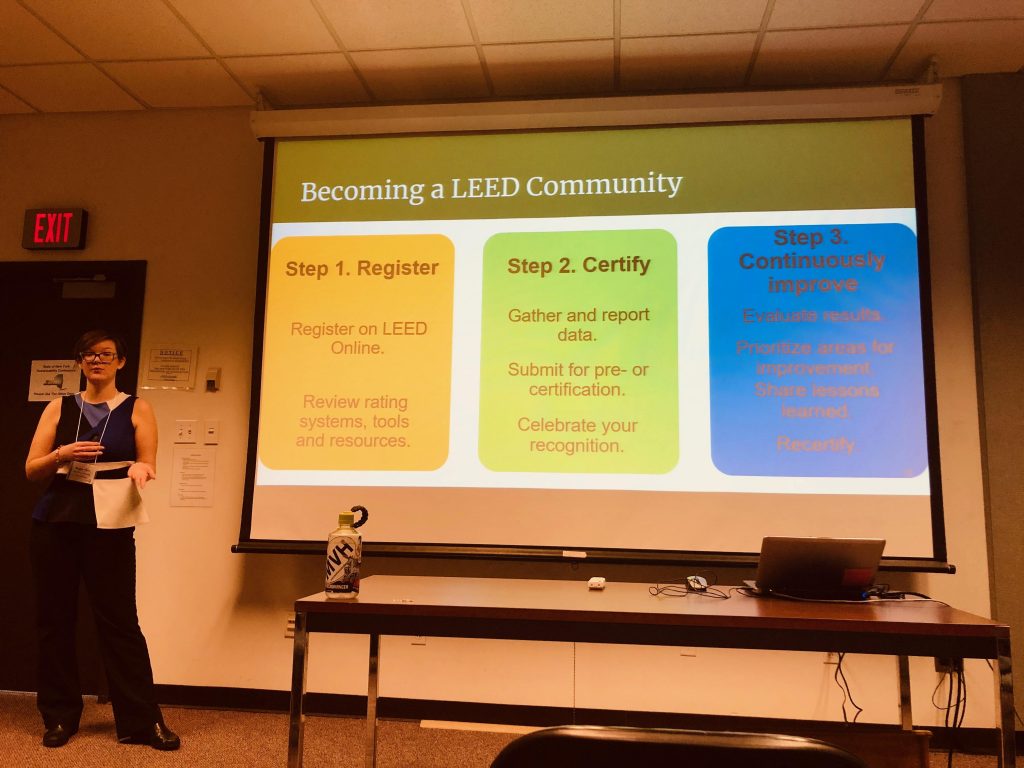
The connections I made through ADK led me to internships at Whiteface Mountain, the Clarkson Institute for a Sustainable Environment, and the U.S. Green Building Council.
My internship at Whiteface was during the summer, so I didn’t have a chance to ski while I was there, but I was able to learn a lot about the challenges winter sports face when trying to be more sustainable. Ski resorts can purchase solar power and more efficient snow guns to protect our winters, but the rest of us have to help, too.
Favorite Professors
None of what I’ve done would’ve been possible without the help of Political Science Professor Stephen Bird and Civil & Environmental Engineering Professor Erik Backus, who were the research advisors for my Adirondack Semester project.
Our project, certifying the New York Olympic Region as a LEED Gold community, required us students to meet with community representatives and collect a lot of data. There was a pretty steep learning curve, but our professors were there to answer our questions as soon as they came up.
I’ve continued to work closely with both professors and they have provided me with seemingly endless support and guidance, going far beyond the scope of our research. Professors can make or break a college experience. Professors Bird and Backus, along with many other amazing professors, have certainly made my experience an incredible one.
Career
After graduation, I hope to work toward creating a more just, sustainable future that balances the needs and rights of people today with those of future generations. I plan on getting a master’s degree in either rural or regional planning. Most community-scale sustainability planning is focused on cities, since they’re so densely populated, but rural communities are also incredibly important when it comes to building a more just, sustainable future.
I haven’t decided yet where I’ll go for grad school, but I know my research experience at Clarkson has prepared me to do well wherever I end up.
Extracurriculars
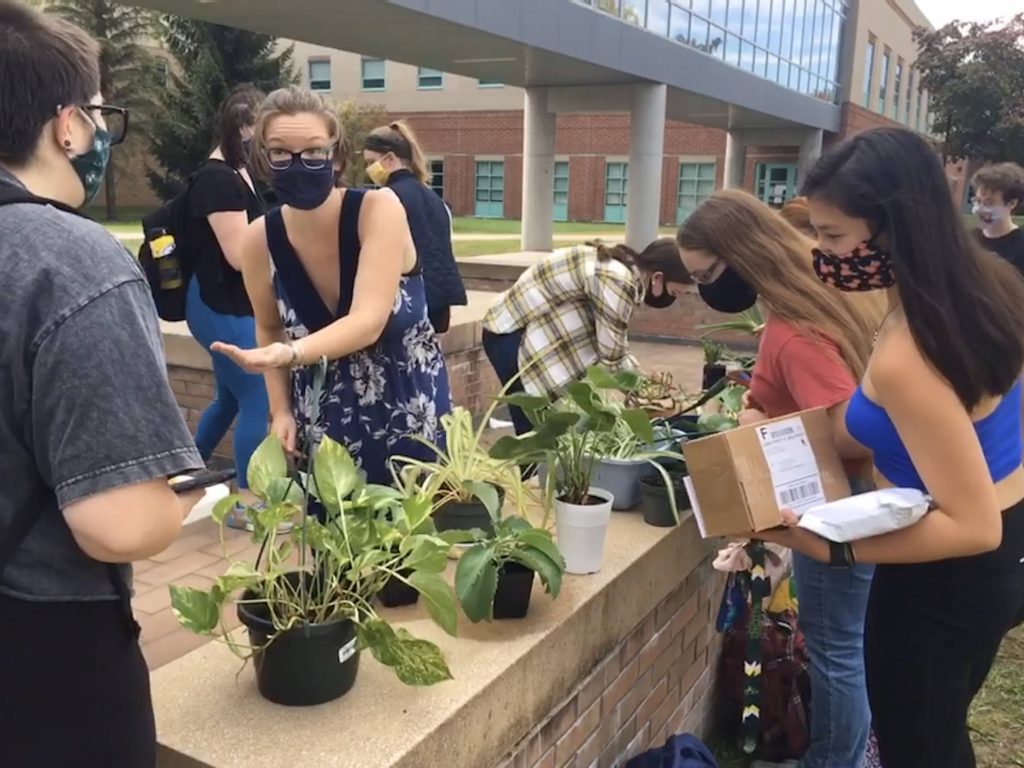
Outside the classroom, I spend a lot of my time with the Clarkson Sustainability Club. Our club is open to everyone, regardless of year or major; the only requirement is an interest in learning more about sustainability and the environment. We organize events like plant swaps and climate rallies and take trips to neat places in the area. We also work closely with the Clarkson chapters of NYWEA and AWWA, which are professional societies focused on water and wastewater.
I would honestly recommend that high school students interested in any of the majors offered by Clarkson come here, if only to participate in the Adirondack Semester.
If you’re specifically interested in majoring in psychology or political science, and you’re looking for a smaller department that will provide you with amazing opportunities, this is definitely the place for you!

